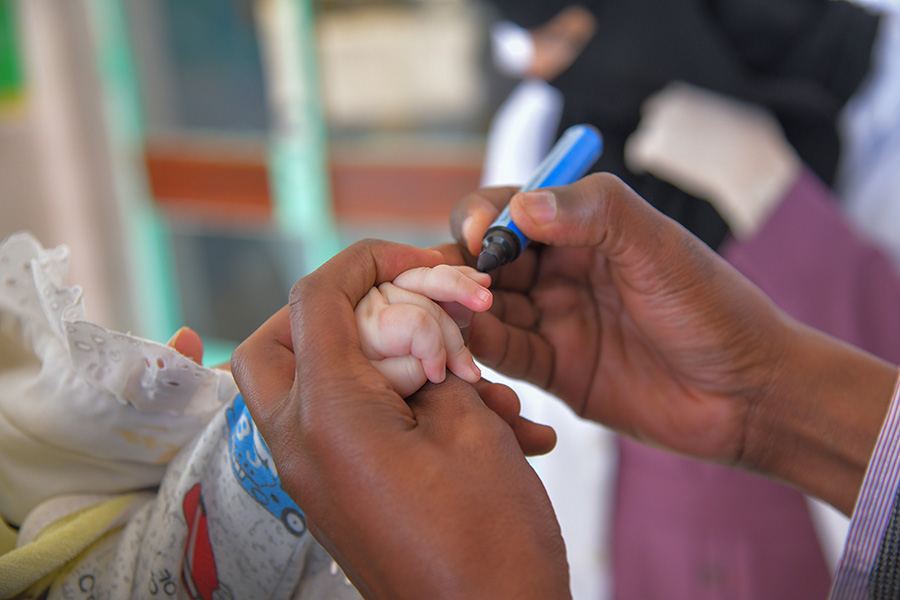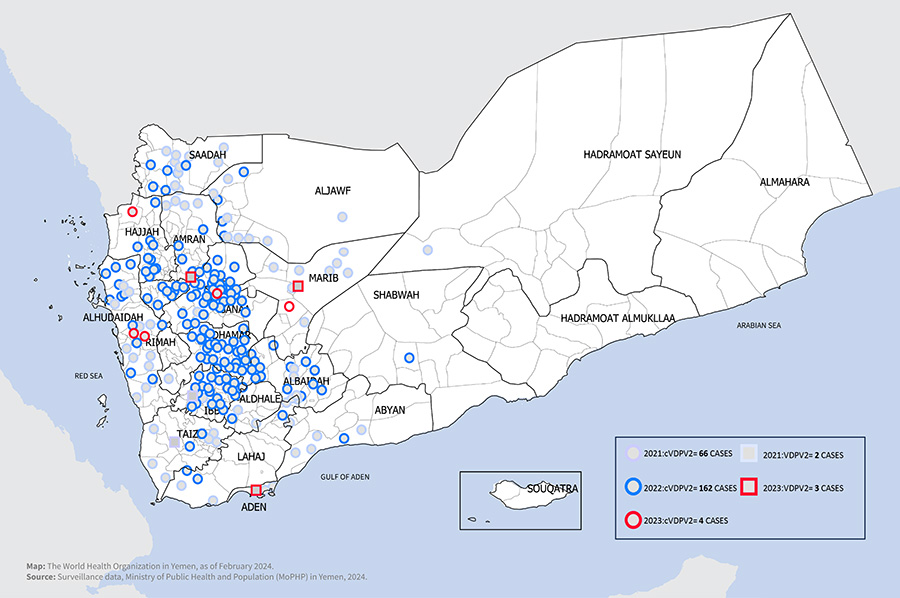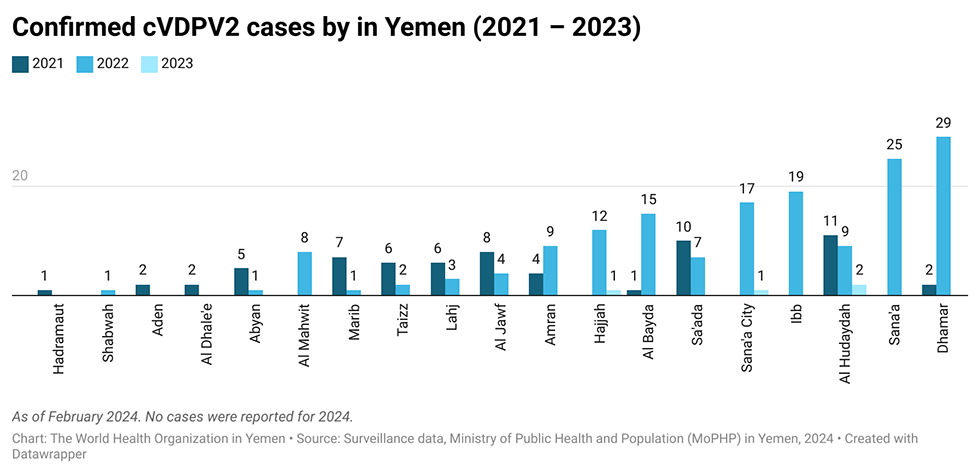 21 February 2024, Aden, Yemen – Conflict could have the worst impact on vulnerable children, who are victims of circumstances beyond their control or capabilities. Almost a decade of conflict has led Yemen to experience devastating outbreaks of vaccine-preventable diseases, which disproportionately affect children. Key contributing factors include extremely limited public health infrastructure and services, limited water availability, and growing levels of vaccine denial and hesitancy.
21 February 2024, Aden, Yemen – Conflict could have the worst impact on vulnerable children, who are victims of circumstances beyond their control or capabilities. Almost a decade of conflict has led Yemen to experience devastating outbreaks of vaccine-preventable diseases, which disproportionately affect children. Key contributing factors include extremely limited public health infrastructure and services, limited water availability, and growing levels of vaccine denial and hesitancy.
“Children are particularly vulnerable to vaccine-preventable diseases such as polio, measles, pertussis and diphtheria,” said Dr Arturo Pesigan, WHO Representative and Head of Mission in Yemen. “One in 4 Yemeni children has not received all the recommended vaccinations on the national routine immunization schedule, and 17% are zero-dose children, who have not had a single dose of diphtheria-tetanus-pertussis vaccine.”
Low vaccination coverage and vaccine hesitancy leave children vulnerable to outbreaks of potentially fatal diseases that can easily be prevented. Organized and widespread antivaccination campaigns that misinform the public have also prevented the effective control of disease outbreaks in many communities.
From 2021 to 2023, Yemen reported 237 variant poliovirus type 2 cases – both circulating vaccine-derived poliovirus type 2 (cVDPV2) and vaccine-derived poliovirus (VDPV). These are known to emerge in contexts of chronic underimmunization. The cases came from 117 districts, and 90% of the affected children were aged under 5 years, while 10% of the cases were among children over 5 years.
Yemen is classified as a country with a high risk of further international spread of cVDPV2. Already, the virus circulating in Yemen has since emerged in Djibouti, Egypt and Somalia.
Fig. 1. Geographic distribution of laboratory-confirmed variant poliovirus type 2 cases (2021–2023)
 Disclaimer: The boundaries and names shown and the designations used on this map do not imply the expression of any opinion whatsoever on the part of the World Health Organization concerning the legal status of any country, territory, city or area or of its authorities, or concerning the delimitation of its frontiers or boundaries.
Disclaimer: The boundaries and names shown and the designations used on this map do not imply the expression of any opinion whatsoever on the part of the World Health Organization concerning the legal status of any country, territory, city or area or of its authorities, or concerning the delimitation of its frontiers or boundaries.
Fig. 2. Confirmed cVDPV2 cases in Yemen (2021–2023)

View Fig. 2 in an interactive format
In 2022 and 2023, WHO supported the implementation of 4 vaccination campaigns using trivalent oral polio vaccine (tOPV) in 12 governorates across Yemen. The first and second campaigns targeted about 2.4 million children aged under 10 years; the third and fourth campaigns targeted about 1.2 million children aged under 5 years. In total, 6 925 255 doses of tOPV were delivered through the 4 campaigns. Rising levels of vaccine hesitancy were observed, however, resulting in missed children.
“From 25 to 27 February 2024, Yemen will join countries across the Middle East, Africa and Europe in using novel oral polio vaccine type 2 (nOPV2),” said Dr Pesigan. “The Ministry of Public Health and Population, WHO and other partners are planning a campaign targeting 1 290 000 children from 120 districts in 12 governorates. A total of 6727 teams are deployed: 845 fixed-site teams and 5882 mobile teams.”
More information
Media contacts
WHO Yemen Communications
Email:
About WHO
Since 1948, the World Health Organization (WHO) has been the United Nations agency dedicated to advancing health for all, so that everyone, everywhere can attain the highest level of health. WHO leads global efforts to expand universal health coverage, direct and coordinate the world’s responses to health emergencies and connect nations, partners and people to promote health, keep the world safe and serve the vulnerable.








